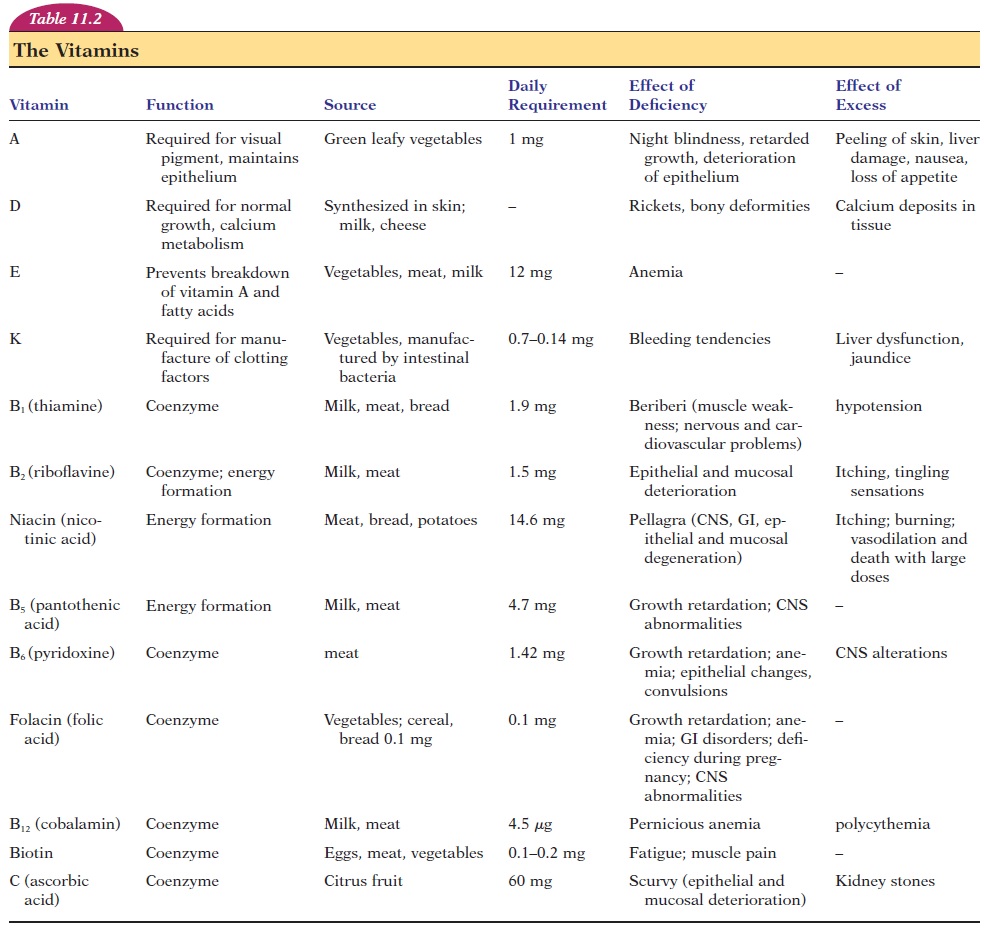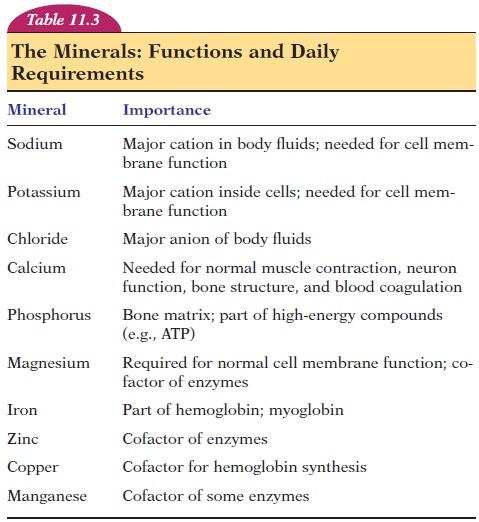Chapter: The Massage Connection ANATOMY AND PHYSIOLOGY : Digestive System
Functions of Important Nutrients
Functions of Important Nutrients
PROTEINS/AMINO ACIDS
Proteins are the constituents of structures such as muscle, enzymes, antibodies, some hormones, neuro-transmitters, and nucleic acids. They also help trans-port other substances in the blood. Proteins are re-quired for the body performing many vital functions. Each gram of protein contributes 4 kcal of energy. An average adult woman needs about 40–45 g (1.4–1.6 oz) and an average adult man about 50–60 g (1.8–2.1 oz) of protein per day. A high protein content can be found in such food as eggs, meat, poultry, fish, milk, and cheese. Animal proteins such as this are considered good because they contain all 10 essential amino acids that can be obtained by the body only through diet.
Not all plant proteins have all essential amino acids; those on strict vegetarian diets must consume a variety of plant proteins.
CARBOHYDRATES
Carbohydrates, the main source of energy, is stored as glycogen in liver and muscle. It is also a major source of dietary fiber. One gram of carbohydrate provides 4 kcal of energy. Rich sources of carbohydrates are whole grains and grain products, vegetables, and fruits. Con-sumption of both insoluble and soluble carbohydrates is needed. The insoluble forms (dietary fibers) add bulk to the food and help with bowel movements. An aver-age diet should contain 30–35 g (1.1–1.2 oz) of fiber.
FAT
Fat is needed for the manufacture of cell membranes and steroid hormones. Some fatty acids are required for manufacturing substances such as prostaglandin and other chemical mediators. Another source of en-ergy, each gram provides 9 kcal of energy.
VITAMINS
Vitamins are organic substances present in minute amounts in natural foodstuff that are needed for nor-mal metabolism. Depending on their chemical char-acteristics, they are classified as fat-soluble vitamins and water-soluble vitamins.
Vitamins A, D, E, and K are fat-soluble vitamins. Being lipid-soluble, these vitamins are absorbed from the diet, along with the fat content, through the di-gestive tract. Vitamin D can be manufactured by the skin when exposed to sunlight. The intestinal bacte-ria manufacture a small amount of vitamin K. Fat-soluble vitamins diffuse across the cell membranes easily and, normally, the body has a large reserve of these vitamins.
Water-soluble vitamins—B1 (thiamine), B2 (ribo-flavin), niacin (nicotinic acid), B5 (pantothenic acid), B6 (pyridoxine), folacin (folic acid), B12 (cobalamin), biotin, and C (ascorbic acid)—are obtained from the diet and absorbed through the digestive tract. Al-though most water-soluble vitamins are easily ab-sorbed from the gut, vitamin B12must be bound to in-trinsic factor secreted by the gastric mucosa before absorption can occur.
Other than the diet, the body obtains water-soluble vitamins from the intestinal bacteria that are capable of manufacturing five of nine water-soluble vitamins. Excess amounts of vitamins are rapidly excreted in the urine. The body does not contain a large reserve of these vitamins, and an individual can show symptoms of vitamin deficiency within a few days to a few weeks.
The function, source, daily requirement, and effect of deficiency and excess of vitamins are given in Table 11.2.

OTHER NUTRIENTS
In addition, the body requires small amounts of such nutrients as calcium, phosphorus, iron, copper, io-dine, zinc, fluoride, magnesium, and manganese to function normally (see Table 11.3).

Related Topics